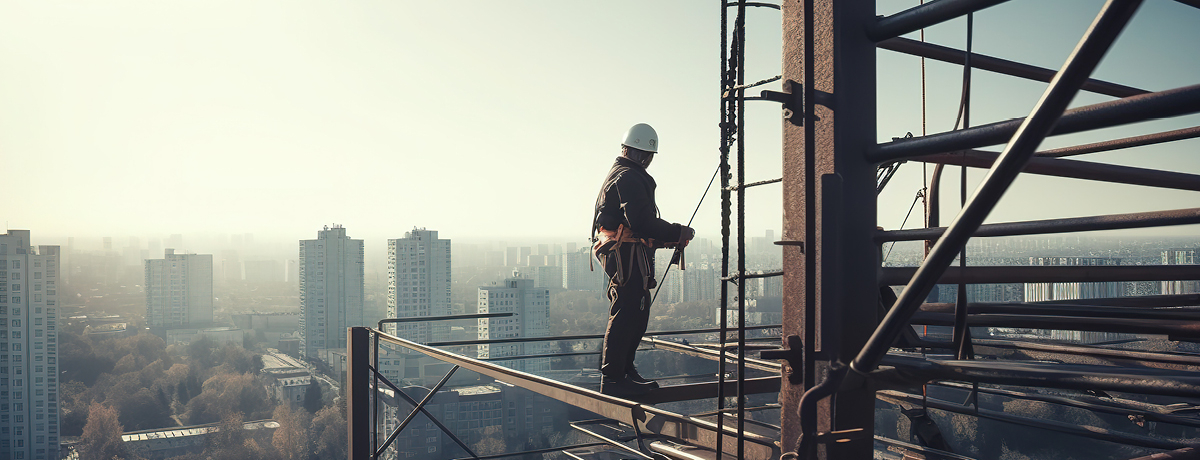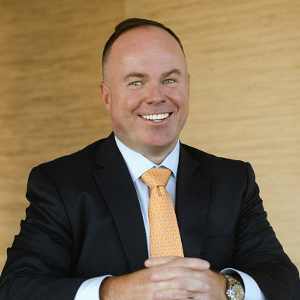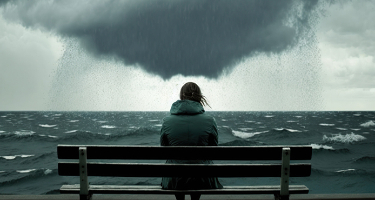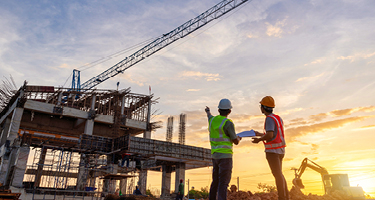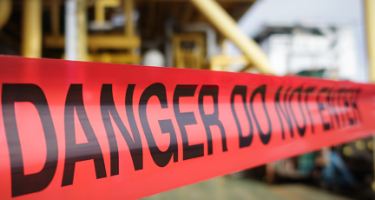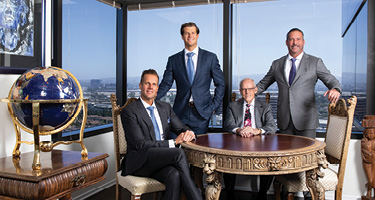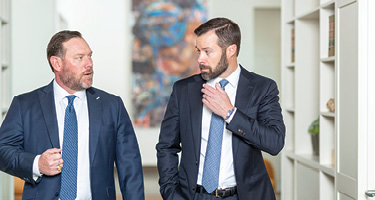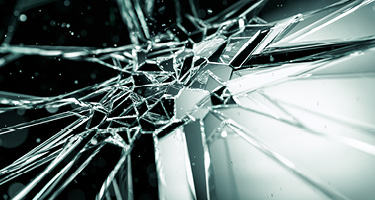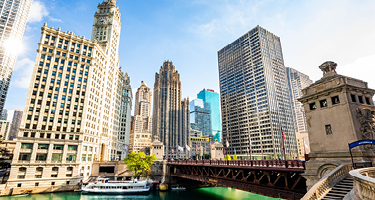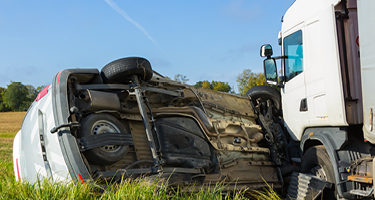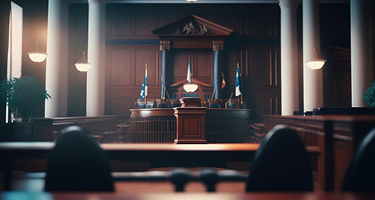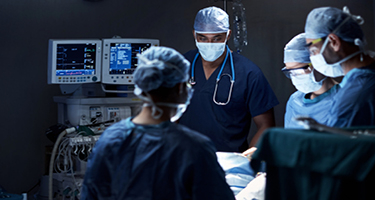YEAR AFTER YEAR, construction workers grapple with life-threatening hazards on job sites. In fact, construction is one of the most dangerous industries in the United States. The Bureau of Labor Statistics (BLS) found that in 2021, construction accounted for the highest number of fatal work injuries in the private sector. Sadly, construction-related deaths have continued to be reported in staggering amounts every year since 2017.
Due to the immense scale of the industry and the scope of projects within it, construction accidents can unfold in myriad ways. However, four general types, aptly called “The Fatal Four,” consistently prove the deadliest. This troubling pattern demands heightened awareness from general contractors, employers, site safety companies and workers, as many of these prevalent hazards are preventable. The notion that the Fatal Four remain a consistent cause of deadly accidents makes it abundantly clear that many such incidents lead to senseless deaths.
Construction Site Falls
Falls are the most common factor in construction accident cases. In New York City, the Department of Buildings (DOB) reported that nine of the city’s 11 construction deaths in 2022 were caused by falls, making this a top concern for workers. Research also suggests that many lethal falls could be avoided with better safety compliance: According to the Occupational Safety and Health Administration (OSHA), fall protection in construction is the most frequently violated safety standard across any industry.
Too often, tragedies involving falling workers can be traced to the improper or incomplete use of personal protective devices. For example, workers may receive safety harnesses, but a harness is essentially useless without a secure tie-off point and thorough training. Another common issue is safety culture on the work site. Too many companies and workers embrace a relaxed attitude about fall protection and permit or even condone workers to be at elevated heights without proper fall protection, even if it’s available.
The DOB confirmed that worker falls have been trending upward since 2005, with such accidents responsible for more than half (58 percent) of construction worker deaths between 2007 and 2014. Scaffold accidents played a prominent role, including in a quarter of fatal falls, while ladder (16 percent) and roof accidents (11 percent) also play a significant role. Beyond these categories, we have seen devastating cases in which a worker falls through an unguarded opening in a floor or other platform, or tumbles into a trench or elevator shaft. Poor planning is a major factor. In many instances, a fatal fall can be avoided if the individual, or individuals, responsible for job-site safety confirms the need for fall protection in advance, identifies the number of workers who will require such protection and makes sure every worker is equipped with it—and is then certain that each has an appropriate tie-off point. Another frequently ignored deterrent is thorough and easy-to-understand training for new and even veteran workers. New or experienced, all need to be fully familiar with the perils of working at an elevated height and how critical fall protection can be. No workers are ever too experienced to reacquaint themselves with modern safety standards.
Falling Object or Struck-By Accidents
On bustling work sites, laborers face the danger of being hit by a falling or rogue object—what OSHA calls a “struck-by” accident—a mishap that plagues an array of construction work.
Struck-by accidents fall into the following four categories:
- Falling objects: Items overhead pose a risk. When safety protections are insufficient, a handheld tool, brick, steel beam, two-by-four or something even bigger may drop onto a worker, causing extreme harm.
- Hoisting: Hoisting is quite common at construction sites. Sometimes things are hoisted by cranes, other times by ropes, pulleys or other machines. When items being hoisted are not properly secured, it can lead to a dangerous falling object scenario.
- Flying objects: Construction operations frequently lead to flying objects: construction materials of all kinds, steel pipes, wood and debris. Activities like blasting, demolition and even weather-related hazards can cause objects to take flight unexpectedly.
- Swinging objects: Dangerously heavy loads may shift from their planned path during transport, often while being moved by a machine such as a crane. Windy conditions can trigger these events, particularly when cranes are used. New York City has experienced harrowing crane conditions because of high winds. In 2020, a crane positioned on a Manhattan rooftop was hanging over a busy residential and commercial area, swinging wildly because of strong wind gusts.
- Rolling objects: Given that vehicles qualify as rolling objects, this category encompasses the many instances in which a worker is struck by a vehicle. It could be something as basic as a forklift ramming into someone or an excavation machine pinning a helpless worker.
What is clear is that better safety measures and awareness can play a role in decreasing the number of fatal construction site accidents. Whenever more than one type of threat is present, the need for prevention becomes even more vital, which is why those responsible for worker safety need to adhere strictly to regulations. A culture of safety is generally dictated from the top, so site safety responsibilities rest on the shoulders of the leadership of the general contractor at the site, as well as other employers.
Caught-In/Caught-Between Accidents
While they’re responsible for a smaller proportion of construction fatalities (5.4 percent), caught-in and caught-between accidents are a perennial problem. In these cases, a worker is trapped between objects that are too heavy or rigid to move. Recurring phenomena in excavations and demolitions, these events can have dire consequences. They differ from struck-by accidents in that the victim’s injuries come from being crushed rather than from the sudden force of an impact.
According to OSHA, a variety of situations count as caught-in and caught-between accidents, including cave-ins, saw accidents and building collapses. Clothing is often its own hazard, as unsuspecting workers can get hurt when a piece of clothing gets stuck inside fast-moving or sharp machinery.
Electrocution
Electrocution is not common, but when it happens, it can be disastrous. Five years of BLS records demonstrate this, with “exposure to electricity” causing well over 100 deaths each year. Once again, construction workers seemingly bore the brunt: The Electrical Safety Foundation (ESF) reported 166 deaths caused by electrocution in 2019, the highest number of deaths since 2011.
Electric shocks can cause immediate and often grave damage to the body, especially at the voltages used in construction work. Survivors of electrocution have suffered burned skin, brain damage and heart problems.
Finally, revisiting the most pervasive of the Fatal Four, dangerous exposure to electricity can be coupled with a fatal fall. If a worker is electrocuted and suddenly loses the ability to stabilize himself, he may die for want of proper fall protection.
Employers’ and Contractors’ Responsibility
While safety organizations are helpful, OSHA and similar institutions simply lack the resources to provide complete oversight of construction projects. OSHA says it can staff just one compliance officer for every 70,000 workers. It therefore falls on those who manage construction projects to take the Fatal Four seriously, recognizing the stakes involved: Any disregard for OSHA’s mandates can result in a tragic loss of life.
Criminal Charges?
Local prosecutors and law enforcement agencies can also play a role in helping contribute to safer conditions on construction sites. Using available criminal statutes, prosecutors can hold contractors criminally accountable for flouting worker safety rules. The potential for criminal prosecution exists when a worker is knowingly deprived of basic safety measures and that failure leads to his or her death. Prosecutors have understandably exercised this option judiciously and have only recently decided to review these types of cases.
Specifically, prosecutors in the Brooklyn and Manhattan District Attorney’s Offices have assembled bureaus to scrutinize all suspicious construction site fatalities. The attorneys in these bureaus have developed an understanding of the industry and the nuances associated with safety rules and regulations.
In fact, both offices have indicted several contractors for felony criminal charges, including homicide. This may present the best motivation of all—it’s certainly far more effective than fines—for construction site safety conditions to improve.
Stephen J. Murphy is a partner at Block O’Toole & Murphy and former homicide prosecutor for the Brooklyn District Attorney’s office. His skills in both criminal and civil courtrooms have repeatedly led to groundbreaking results, including a $32 million jury verdict for a catastrophically injured pedestrian. In 2022, Best Lawyers named Mr. Murphy "Lawyer of the Year" for Personal Injury—Plaintiffs in New York City; he was also one of New York’s top 15 personal injury lawyers recognized by Forbes magazine in 2023.



